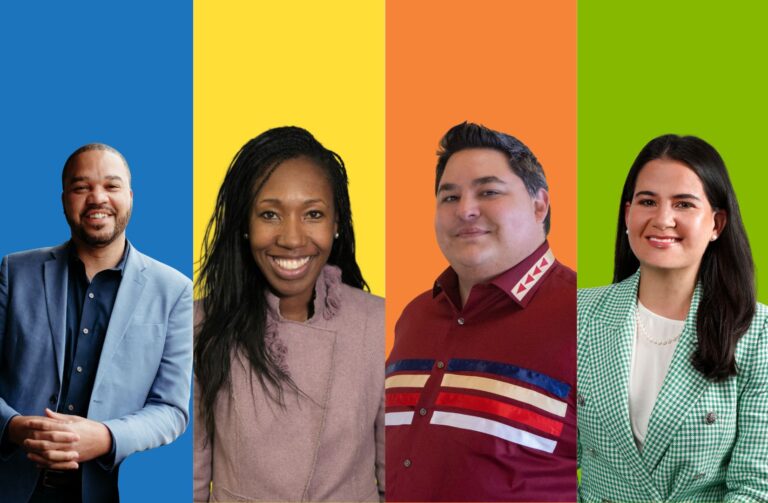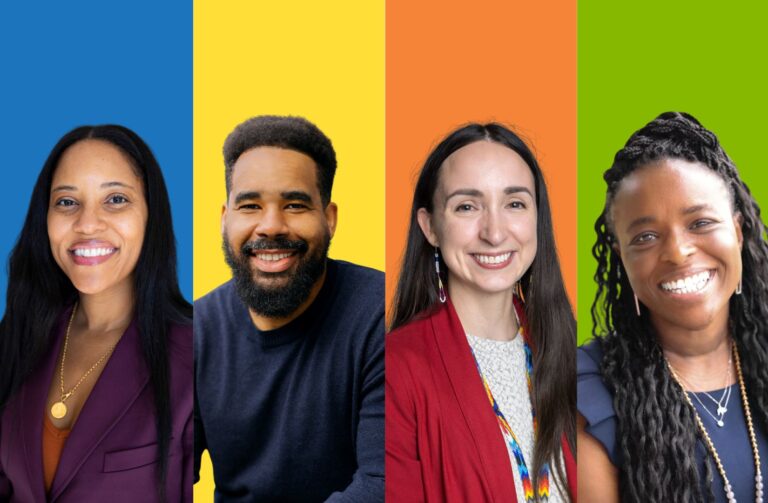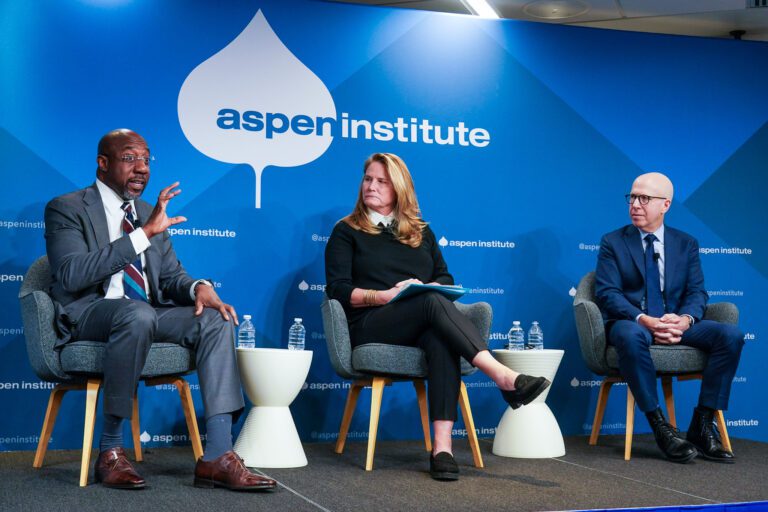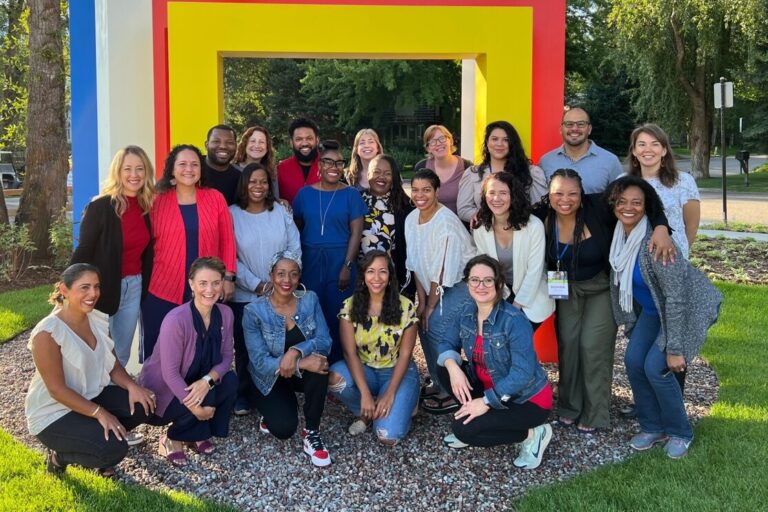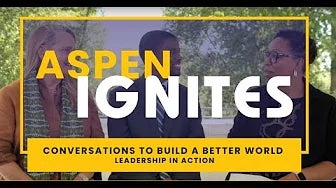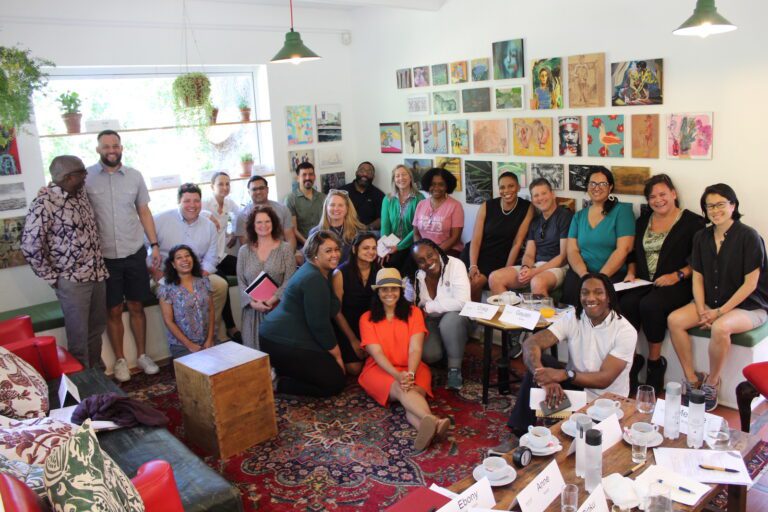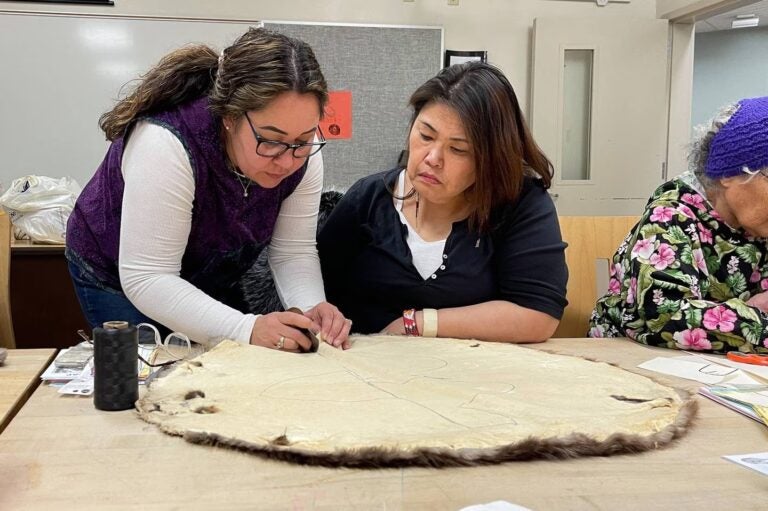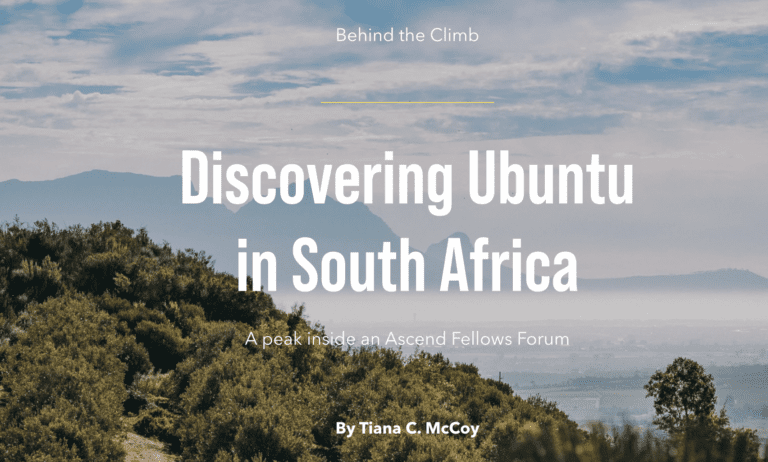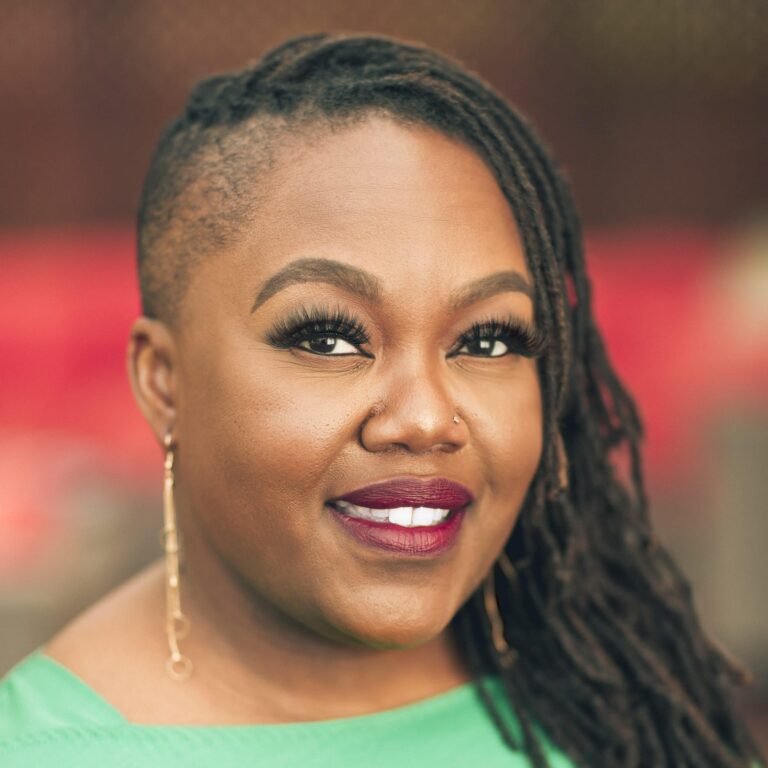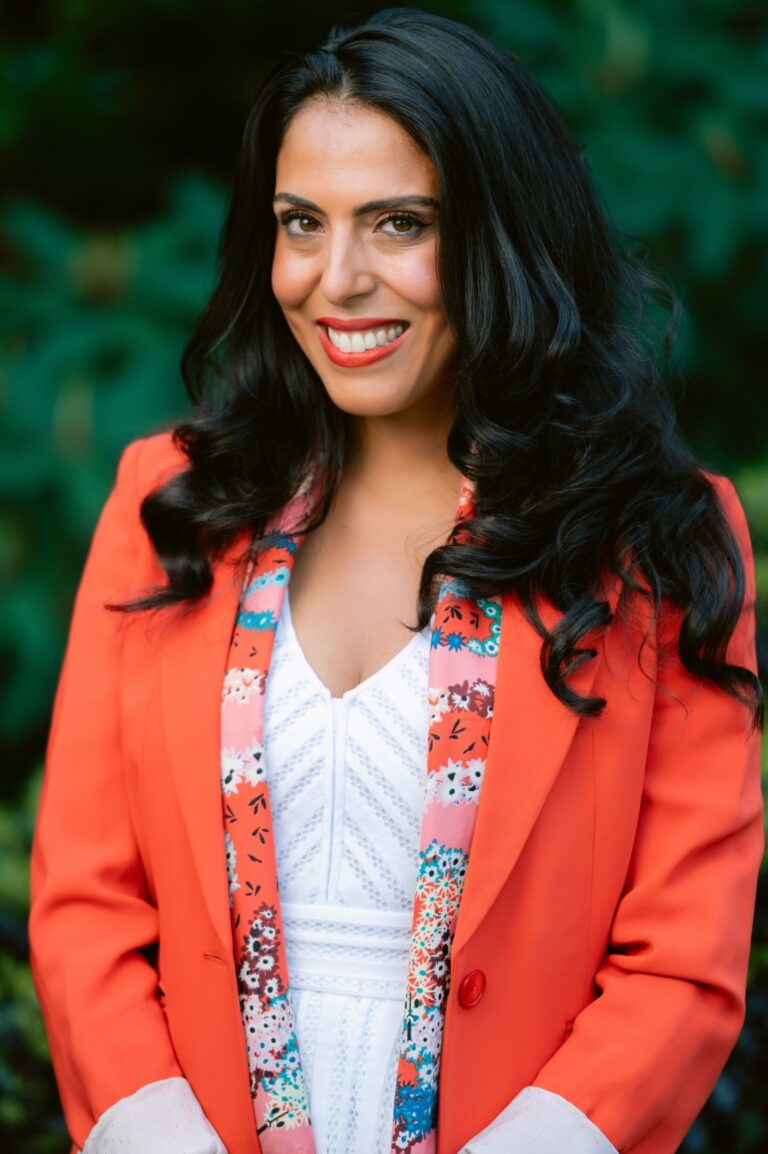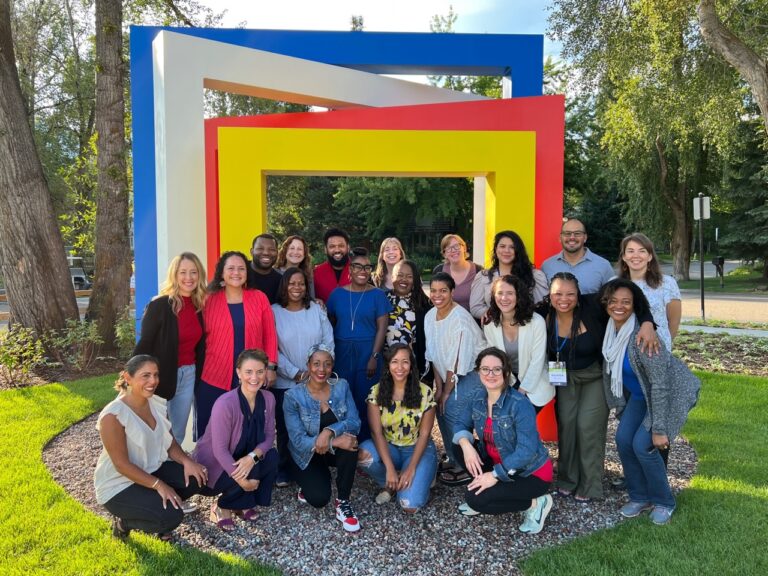Dreams Don’t Work Unless We Do
Ascend at the Aspen Institute and GOOD+ Foundation convened fathers, researchers, thought leaders, policymakers, and social service program leaders to explore the father factor – a critical link in building strong families and communities – at the end of November 2018.
Reverend Dr. Raphael Gamaliel Warnock, Ascend Fellow, and senior pastor of the historic Ebenezer Baptist Church – spiritual home of the Reverend Dr. Martin Luther King, Jr. – gave the closing keynote. As he reflected on the 50 years since the passing of Dr. King, Reverend Warnock reminded us of Dr. King’s dream and the work we all have to do to realize it.
We share a transcript of Reverend Dr. Warnock’s closing keynote in honor of this weekend’s celebration of Dr. King’s legacy and a redoubling of our efforts for social justice for all children and families.
Alright, it’s dangerous for the preacher to stand behind the lectern. You might get a sermon on a Thursday afternoon. I’m grateful to Anne Mosle, Lori Severens, and the wonderful people at the Aspen Institute. They’re the only ones I think who can bring us together in this way. I’m grateful to them, give them a great big round of applause. And to Jessica and Jerry Seinfeld and their family and the GOOD+ Foundation, we’re grateful for your commitment. You’ve been in this a long time. We’re grateful.
I’m glad to be here. I guess they asked the preacher to close us out. I guess I could just give the benediction – closing prayer – or I could raise an offering.
You all aren’t laughing. But I’m grateful to be here. This is such important work, and my most important job these days and my proudest title is Chloe’s dad, my two year old, who is the light in my life and the center of the joy of both me and my wife Ouleye. I dropped her off to preschool yesterday on my way up here in Atlanta. And Chloe is so precious and so cute that I feel like she can’t do any harm. And so, you know, I’m a little bit of a germaphobe, but when it comes to Chloe, things that would bother me like people coughing and that kind of thing, you know, I don’t even get back. And I’m suffering a little bit from that today. It’s called the daycare bug.
But I’m grateful. I want to thank Aspen again and the GOOD+ Foundation for pulling us together in this way. I stand as the pastor of Ebenezer Baptist Church. It’s the home church, of course, of Martin Luther King Jr, who was taken from us 50 years ago this year. I think it’s important for us to keep that in mind that we lost Martin King, and we lost Robert Kennedy 50 years ago this year. As Dr. King made his way to Memphis, he was continuing work that he began some 13 years earlier in Montgomery, in his own words, trying to facilitate a revolution of values.
When he and others started the Southern Christian Leadership Conference (SCLC) in 1957, their work wasn’t simply to bring down the walls of segregation. The model and the theme of SCLC was to redeem the soul of America. And so as a faith leader, as a person of faith, I believe that public policy has spiritual implications. And a big part of what we’re doing these days, if we’re talking about fatherhood or a whole range of issues that concern us these days, the noise and the public square in a real sense, we’re fighting for the soul of our country.
But Dr. King was drawn to Memphis, and I think it’s important to lift up that the movement had been fledgling and struggling in Memphis, a local movement amongst some sanitation workers, but then one day during a rainstorm, two sanitation workers, Echol Cole and Robert Walker, were literally crushed. Their bodies were literally crushed in the back of their sanitation trucks. This is 1968. It’s because they were forced to ride the back of the truck. They couldn’t seek shelter like their white colleagues, and so they sought shelter from the natural rain, but there was no security from the unnatural disaster of Jim Crow segregation a few years after the civil rights law had already been passed.
And so Dr. King made his way to Memphis. And in the midst of that struggle emerged those iconic signs that we began to see again this year – very simple but sublime words – I am a man. Think about that – I am a man. Part of what it means to be a marginalized other, an oppressed person is that you have to have movements. You have to have a campaign to declare about yourself what ought to be obvious. So oppressed people have to have campaigns and say, I am a man. I think of Sojourner Truth in the 19th century, standing up and speaking for women’s rights and the rights of people of color and saying to her, white feminist colleagues, “ain’t I a woman.” And now of late, our younger sisters and brothers are saying, black lives matter. And when people respond to say, all lives matter, it’s obvious that they’ve missed the point.
That is the point, that all lives matter. And if you don’t understand the contradiction, that speaks to the blindness of your own privilege. All lives matter – to say that all lives matter is like the fire engine showing up on the block and there’s a house on fire and you spray all the houses on the block because all houses matter. Some houses are on fire.
So this is important work. And I mentioned that because in the real sense, as we fight to put more emphasis on fathers, at the heart of it, is really a struggle for personhood, a struggle for somebody-ness. What we’re really fighting against is a long legacy of systemic racism and structural inequality that has waged war against Black families and brown families and poor families. Not simply benign public policy flaws, but structural inequality. Martin Luther King, Jr. of course was shaped by the struggle, the long years of struggle to address what I and others call America’s original sin.
But I’m struck by the fact – as we talk about fathers, Anne – I’m struck by the fact that Martin Luther King, Jr. – another obvious point – had a father. I say that because even in the early biographies of Dr. King, the earliest biographies, the early scholarship, there was a tendency to talk about him as if he arrived at Crozer Seminary and at Boston University, a tabula rasa, a blank tablet, and they just wrote everything on there. It was as if he did not emerge from a community that was struggling for centuries against injustice and inequality. Dr. King had a father, in fact, to this day at Ebenezer, we call him Daddy King. That was his moniker, and people over Atlanta and across the country had great respect for Daddy King. Martin Luther King, Jr. fought to pull down the walls of segregation, but his father, struggling within the system of segregation itself, was struggling for the equalization of teacher salaries decades before his son’s movement. During the Civil Rights Movement, we got the voting rights law passed in 1965. Dr. King pushed through that legislation in 1965. But Daddy King, Martin Luther King, Sr., the third pastor of Ebenezer Baptist Church – and we’ve only had five. We were founded in 1886. I’m the fifth senior pastor. We stay for a little while, I hope. We are a Baptist church. They can vote, you know. But Daddy King was fighting for voting rights in 1935.
So his son received values and a sense of confidence and belief that he could be an agent of change. That didn’t come out of nowhere. It was not just in his DNA, but sitting around the dinner table, there were these values that were transmitted, that shaped who he was. His maternal grandfather A.D. Williams, the second pastor of our church, pushed through a public referendum that created the first public high school in Atlanta in the 1920s, I believe 1926. Prior to that, [there was] no public high school for Black children in Atlanta. And so all of us are shaped by biological fathers and those who’ve been like fathers to us. And it does take a village. It’s not always a biological father. Sometimes it’s an uncle or a coach or a teacher or a pastor or a youth pastor or mentor. Black folks certainly have an extended view of family. Because our families have been assaulted in so many ways, we’ve had to be creative. I don’t know if any other culture has play cousins.
Don’t y’all act like you don’t know what I’m talking about. We have play cousins, and people who are just part of the family and a part of the network, and it was this larger village that shaped Dr. King. He was shaped by a daddy that we don’t know nearly enough about. The world doesn’t know nearly enough about fighting for voting rights in 1935. You’ve heard of the 10 Commandments. He had the 11th and the 12th commandments. Daddy King used to tell his parishioners the 11th commandment is thou shalt go to college, and the twelfth commandment was thou shall own your own home. And so he was talking about education and economic justice, built on a spiritual foundation in the 1930s and the 1940s and the 1950s – a towering figure who often talked about what he called the least of these.
And so Dr. King got his sense of self-confidence pushing against a Jim Crow system. He had been inoculated against self-loathing by the confidence that was poured into him by larger spiritual community. My predecessor, Dr. Joseph Roberts, who succeeded Daddy King tells me the story. He told me this story before he died a few years ago of how, after he became pastor, Daddy King used to still come to the church. And he always had a sense of somebody-ness, this country boy from Stockbridge, Georgia. And so one day he was bored, and he had already retired, so he turned to the secretary – and Jimmy Carter was president. He had helped Jimmy Carter get elected by reassuring Black people that this governor from the south could be trusted. And he never let Jimmy Carter forget it. But when he called to ask for something, it was always for something for somebody else. But one day he just turned to his secretary and said in his own inimitable way, “call the President.” And she looked at him in disbelief and said, “call the President?” “Yes, call the President.” And so she called the White House, and Daddy King picked up the phone and said, “is this the White House?” The secretary said, “yes, this is the White House.” “This is Martin Luther King, Sr. Is the President busy? She said, “yeah, the President is busy.” He said, “okay, I understand. Tell him to call me back in 15 minutes.”
I told the story – Jimmy Carter remembers it – I had the honor of introducing him. Jimmy Carter called him back in a few minutes. But he had this kind of self-confidence that was passed on to his son. I don’t know about the other parents in this room, but I feel like the biggest part of my job is to instill self-confidence in my children – the one that is here and the one that’s on the way. If you believe in yourself, that can take you a long way. I’m inspired by the memory of my own father and his influence on me. I’m the son of two Pentecostal preachers, mother and father, and I grew up in public housing. We were poor, but we had a lot of love and a lot of faith and a deep sense of humor. And my dad and my mom used to quote scriptures to me on the way to school too. In fact, if you know anything about Pentecostal folk, you know they just spoke in the world of the Bible. Even when they were just talking about regular stuff, it was with the gravitas of King James English. My mama would say, “thou shall wash the dishes, lest I smite thee with my rod and my staff.”
But they instilled in me a sense of confidence. And so I decided as a young boy that I was going to Morehouse College, that great institution with a wonderful history of shaping young men. And I’d never seen Morehouse, only lived four hours away, but I had never been to Morehouse college. But I was going, and so I remember going in the fall of 1987 to Morehouse College. And when I arrived, there were guys there who were already doing well and dressed well and driving all kinds of fancy cars. And there I was trying to figure out how I was going to pay the tuition for the first semester. I went to Morehouse on a full faith scholarship. Anybody went to school on a faith [scholarship]? I went on a faith scholarship. And as my parents were getting ready to go, I looked to them hoping to get some money for books and other things, and my daddy – true story – he looked at me and spoke to me in King James English. He said, “silver and gold hath I none, but such as I have to give I unto thee, the grace of the Lord Jesus be with you.” [He] put his arms around me. Mama gave me a big hug. They got in the car and drove off into the horizon. Four years later, some of those guys who are driving those fancy cars, they were driving past the stage, but I was standing on the graduation stage getting my degree.
So I had a sense of belief, a sense of somebody-ness. But somebody gave me a Pell grant. Somebody gave me a low-interest, guaranteed student loan. It took parenthood, good parenting, and good public policy to get me from Kayton Homes housing projects to King’s pulpit. And so in that tradition, I’ve tried to live out that kind of commitment. We have built that Ebenezer Baptist Church, a community center named in honor of Daddy King, and we’ve created a one-stop shop. They have wraparound services serving families, fathers and mothers, and their children. We’ve been blessed that Casey Family Programs is on our church campus working with kids in foster care and trying to create opportunities for kids to be placed in forever families, to stay with their families. We’ve been working with Casey to disrupt the school to prison pipeline. The city of Atlanta has placed its workforce office on our church campus. So there’s a satellite office for workforce development at the church and the Department of Family and Children’s Services. For a while, Operation Hope, that’s focused on financial literacy and creating 700 credit score communities, was on our church campus, and then more recently the 100 Black Men, the Atlanta chapter. They have partnered with us, and they are located in our building down the hall from my office. And they’re working with children and working with fathers. These professional Black men, wonderful examples for young boys and girls, giving them a sense of what they can become.
This is all work that all of us have to do. And I don’t know about you, but I leave here today hopeful and inspired as I see the incredible work that’s being done all across the country, the effort to be creative. But we cannot talk honestly about this issue without also talking about living wage, and that’s come up today. Fathers at work – and most poor people work. Those who can work, work – contrary to some of the rhetoric you hear in this town. People need a living wage. You cannot afford an apartment in any city in America for the current minimum wage. People need affordable housing, access to healthcare through Medicaid expansion, which focuses on helping the working poor. So we’ve got to deal with all of these policy issues and the connections between them all.
But we also can’t talk honestly about this issue without also addressing the fact that we lock up more people, and therefore more dads, in America than in any nation in the world. I’m grateful for all of the creative programs that I learned about today, but we will not be able to really address this issue if we don’t deal with the warehousing of Black and brown men. The war on drugs has largely been a war on communities of color. Twenty-five percent of the world’s prisoners are warehoused in the United States. Every time I think about that statistic, it sends chills and pain through my body. We’re 5 percent of the world’s population. We warehouse 25 percent of the world’s prisoners. That is the latest iteration of this long saga that began 400 years ago next year when 50 men, women, and children arrived on the shores of Jamestown, Virginia.
It is America’s original sin, its most intractable social issue. Racism and what Michelle Alexander rightly calls the new Jim Crow is the latest iteration of this issue, and so we’ve got to deal with the fact that we’ve got more people in prison and a greater percentage of our population in prison than any other country in the world. And we’ve got more Black people under social control than were in prison in South Africa at the height of apartheid. We’ve got to deal with the fact that most of them are there for nonviolent drug-related offenses, and Black people and White people use and sell drugs at remarkably similar rates. Before coming to Atlanta, I pastored in Baltimore. And so I saw up close, as you see in all of our large American cities, the devastation of the so called war on drugs.
It’s interesting to me as a child who grew up in the ‘80s that when we were talking about crack cocaine and young Black men, we had a war on drugs. And we’ve got to deal with the elephant in the room. The reason why we’re having to have this conversation about fathers is fathers have been kidnapped out of their communities, and their children are growing up without them, and the outcomes are actually predictable. And as long as we were talking about brown and Black bodies in the inner cities of America’s urban metropolis, we had a war on drugs – a war. And when you have a war on drugs, you treat those at the center of the war like enemy combatants. Now that the bodies are White and in rural communities, politicians on both sides of the aisle are rightfully talking about the opioid crisis. I’ve never heard anybody speak with such empathy for Black and brown folk addicted to crack and heroin. I never heard anybody talk about a crackioid crisis. I mean, it even sounds better. So we’ve got to deal with the fact that in all of our American cities, half of the young Black men are caught up somewhere in the matrix and control of the criminal justice system.
This is not theoretical for me. I’m one of seven boys in my family. I’m the youngest son, but my own brother, the one right above me, is in federal prison right now. He was sentenced to life in prison without the possibility of parole. First offense, nonviolent drug-related offense, aiding and abetting. His crimes were his crimes, but the punishment doesn’t fit the crime. First time offender, veteran of Operation Desert Storm, never been in trouble with the law before. Nonviolent drug-related offense. Nobody was killed. Nobody was hurt. Nobody even got high because the crime scenario was created by the state. And he is now in his 21st year. He was 33 when he went in. He’s now 54.
And so our family lives with this deep sense of incarceration. When dads are locked up, their children are locked up. He has a daughter who’s only known her father in federal prison. When dads are locked up, their mothers are locked up. He has an 81-year-old mother. I prayed as recently as this morning, “God, before my mother closes her eyes, let her hug her son, not in the system but standing in her own home. But this is the horror that people live with every day. And I’m not so sure that many of us understand the draconian sentences that many of us are dealing with and the kind of carceral state, the bulging carceral state and its assault on Black and brown families in a country where blackness and criminality are almost interchangeable in the western moral imagination. And so with that spirit, our church decided that we had to be engaged in this issue.
We’re America’s freedom church. And I believe that all communities of faith have to be focused on this issue. I see mass incarceration, the prison industrial complex, as perhaps the most pressing domestic moral issue of our times, and all the issues that we’re concerned about, it touches. And so our church, two years ago, convinced the officials in our county to organize at our church an expungement event – the first of its kind in the state of Georgia, one of the first of its kind in the country – where you were able to go to one location on one day and have your criminal arrest record expunged. And so one of the proudest moments in my ministry was when I walked into church on a Saturday morning – we had announced through the media that you could get your arrest record expunged at Ebenezer – one of the proudest moments in my ministry was when I stood and looked across a sea of faces in the Ebenezer sanctuary, and I knew that everybody sitting in those pews had a record. That’s an interesting congregational gathering. Everybody in the pews had a record. If it was Sunday morning, I’d have time to break down for you the way in which that’s true every Sunday. And that’s another sermon, but all of us have a record, and we were able to convince the judges, and the district attorney, and the defense attorney, even the GBI (Georgia Bureau of Investigation) – they came with their computer system, created a command center in our church. We told the GBI, you know, this can’t be a trap. So they agreed not to look on the page that will tell them whether or not a person had an outstanding warrant. And that Saturday and the subsequent Saturday, we expunged hundreds of criminal arrest records. I’m glad about it, but I’m also mad about it.
I’m glad because it literally changed people’s lives. Folk who weren’t able to get a job were able to get a job. People who couldn’t apply for an apartment had a complete new lease on life. That’s why I’m glad about it. I’m mad about it because notice I said criminal arrest records. These are people who haven’t been convicted of anything. In many cases they had been acquitted, but they live with this cloud over their heads. After that expungement event, a few weeks after that, I was sitting in the chair in the barbershop – true story. Believe it or not, I was sitting in the barber shop. And this man walked up to me and he said, “Pastor, thanks for organizing that event.” I said, “thank you very much,” and I was trying to get out of there. He said, “no, hold on a minute. You don’t understand. You cleared my record.”
He was a well-dressed man, had on nice sports coat, middle age. [He] didn’t look the part of our implicit bias. [He] said, “you cleared my record.” He said, “A few years ago, I had an issue involving a bad check, and I haven’t been able to shake it. I’ve had jobs since then, but never a good job. But when you cleared my record, I was able to get a good job. [It] literally changed my life, increased my income.” I said, “Wow, that’s an amazing story.” He said, “Hold on, Rev., I’m not done.” He said, “You know, because you cleared my record, a little while ago, there was a member of my family, a young couple, they had a kid, and they weren’t able to take care of the kid, and the kid was about to go into foster care. And you know the unfortunate outcomes of most kids in foster care. Because you cleared my record, DFCS (Georgia’s Division of Family and Children Services) would take a look at me, and I was able to adopt my own child.” Two generations changed because we cleared one guy’s record.
We’ve been replicating this work all across Georgia. A few weeks ago, several counties did it at the same time. We sent out a film crew. We’ve been documenting it and trying to build a toolkit to help faith leaders and other community leaders do this all across the country. And while we’re expunging people’s records, we need to have a larger conversation about why people are still guilty even when they’re not guilty.
Father’s Day weekend we spent bailing poor people out of jail. And so all of this work that we’re doing leads us in a few months from now to a national conference that we are convening at Ebenezer Baptist Church. June 17 through June 19, 2019, we are organizing a faith movement, a multi-faith gathering of leaders of faith and moral courage who are committed to the work of ending mass incarceration. We partnered with Auburn Theological Seminary. I hope Aspen and others will help shamelessly plug, but we’ve got to have a movement. And as I close – you know, preachers have three or four closings, I only have one – I think about this five-year-old boy who was disrupting his class, and the teacher couldn’t take it. He was strong willed, had a lot of energy, so the teacher said, “I’ll tell you what.” He gave him this puzzle, put him in a corner and said, “You work on this puzzle. It’s the whole world.” [He] said, “That’ll keep him busy for a while.”
You know, a few minutes later, he was done. The teacher was amazed. He said, “How’d you do that?” He said, “Well, teacher, on one side of the puzzle, you had a picture of the world, but on the other side of the puzzle, you had a man’s face. And I put the man together, and when I put the man together, I put the world together.”
So in a real sense, what we’ve got to do is we’ve got to restore broken men who’ve been assaulted by this long nightmare as embodied in this latest iteration. And we’ve got to do this work together across ideological and political lines, across racial lines, across religious lines. We have to do this work together.
And as I do this work, I’m tired. Sometimes I get worn out. And when I get worn out and tired and discouraged, I’m a preacher, so I look up, and because I’m a preacher, I’d like to tell you that when I look up, you know, I see something deep and mysterious – the finger of God writing across the Milky [Way]. The truth is I usually just see birds flying by. But I like to see geese fly because geese fly in a V formation, and the one that’s out front, the leader who’s receiving most of the light and the glory, is actually working the hardest, leading by example. But what I like about geese is that when the one out front gets tired, she just moves toward the back of the formation, and another goose just moves in its place. Geese do that without a war, they do it without a schism, they do it without a fight, they do it without one side of the geese formation deciding to shut the whole geese government down because geese understand that my individual location is not as important as our collective destination. So let us go forth from this place working together and struggling together. There’s a great camp meeting in the promised land.
Check out highlights from the convening and learn more:
- Agenda
- Recording of the morning session and powerful closing keynote from Revered Dr. Raphael Warnock, senior pastor, Ebenezer Baptist Church
- 2018 Solutions Series briefs, Providing Care and Custody With Dignity and Respect Within Colorado Division of Youth Services and Engaging Fathers in Child Support: From a Punitive to a Supportive Approach, by Ascend Colorado Children and Families Fellow Tony Gherardini and Ascend Fellow Reggie Bicha
- Stay tuned for a brief highlighting key takeaways
This conversation highlighting the importance of fathers in helping children and families thrive was the fourth convening of Ascend’s 2018 Solution Series, a collection of briefs, webinars, and convenings that elevate the top opportunities and actionable solutions to move children and their parents toward educational success and economic security.
Related Posts
